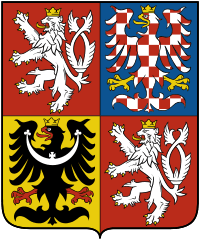Supporting Roma inclusion and empowerment through the EEA and Norway Grants 2014-2021 in the Czech Republic and Romania: exchange of experience of Programme Operators

Published
In mid-February of this year the Ministry of Finance as the Programme Operator for the Programme "Human Rights, Roma Inclusion and Domestic and Gender-Based Violence" was approached by The Romanian Social Development Fund (Fondul Român de Dezvoltare Socială, FRDS) with a proposal to exchange experiences in the area of Roma inclusion and empowerment within the implementation of the EEA and Norway Grants 2014-2021 in the Czech Republic and Romania. FRDS has a similar role as the Ministry of Finance, i.e. the Operator of the Programme called "Local Development and Poverty Reduction, Enhanced Roma Inclusion". Both programmes, the Czech and Romanian, share the same programme area providing a grant support for projects aiming to improve the situation of the Roma minority in the respective country. The Ministry of Finance has been responsible for setting up a system of grant support in the area of Roma inclusion and empowerment in the Czech Republic and has allocated more than CZK 166M (EUR 6,7M) for this thematic area within the Human Rights Programme. In total 22 projects were supported by a grant. Since our programme team has a lot of experience in the preparation and implementation of grant support which could be shared with our counterparts, we were more than happy to welcome our Romanian colleagues in Czechia.
The three-day study visit of ten representatives of the FRDS accompanied by one member of their Norwegian Programme Partner, the Norwegian Association of Local and Regional Authorities (Kommunesektorens organisasjon, KS), took place between 23 and 25 May 2023. On Tuesday, a joint workshop was held at the Ministry of Finance. Both groups introduced respective programmes, their aims incl. opened calls for proposals, the management setup for programming and implementation phase and highlighted the exceptional projects implemented in both countries. Extensive discussion took place for each of the topics on the agenda and together with our colleagues from FRDS and KS we searched for practices that could be considered as a good practice and possibly be also transferred and applied either in Czechia or in Romania. One of the conclusions of the seven-hour workshop was that the difficulties the Roma minority has been facing are shared and as such are crossing state borders. International cooperation is therefore welcomed, beneficial and essential.
The agenda for Wednesday and Thursday was reserved for visits to projects focused on Roma inclusion and empowerment that were supported by a grant from the Human Rights Program. The representatives of the FRDS and the KS had the opportunity to see the exhibition "Open Road / Phundrado Drom", to learn about educational activities for students on Roma minority, their history, culture, and the injustices and violence (including the Roma Holocaust) they have faced countless times. The familiarization with so called soft measure activities was supplemented by a visit to the site of the future Roma and Sinti Center in Prague and the presentation of visualization of the renovated premises. All of the abovementioned project activities, which were introduced to FRDS and KS, are carried out within the project of the Museum of Roma Culture. We also took our Romanian colleagues to the City of Tábor to demonstrate them an example well-established and functioning partnership between a city and a non-profit organization aimed at the inclusion of Roma minority. The City of Tábor and Cheiron T NGO have been actively working with the Roma community for a long time and their cooperation has resulted in two projects that they are implementing together. Representatives of both the FRDS and the KS had an opportunity to talk to Roma advisors about their activities and work with the local community. They also learned about extracurricular and leisure time activities for Roma children (but not exclusively for them) that motivate pupils and students to stay in educational process and facilitate their integration into mainstream society. During the visit to the projects, the Romanian colleagues particularly appreciated the above-standard quality of the project activities and the extraordinary commitment of all the people involved in their implementation.
More about visited projects:
Muzeum romské kultury (english version)
Všichni společně (english version)
Motivace ke vzdělávání od školky až po střední - podpora dětí i rodičů (english version)

